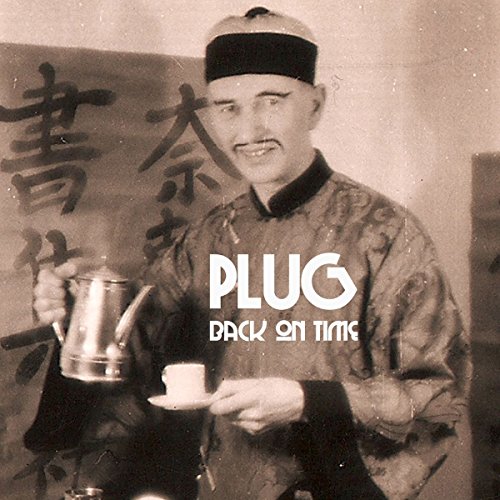
Plug
Back on Time
Release Date: Jan 24, 2012
Genre(s): Electronic, Club/Dance, Jungle/Drum'n'Bass, Experimental Jungle
Record label: Ninja Tune
Music Critic Score
How the Music Critic Score works
Album Review: Back on Time by Plug
Great, Based on 4 Critics
Based on rating 4.0/5
Released in 1996, Plug's Drum 'n' Bass for Papa might not have had the ubiquity of Goldie's Timeless or Reprazent's New Forms, but it had something many other drum & bass albums of the era were sorely lacking: a sense of humour. Which could well be why it was roundly ignored by a drum & bass scene who seemed able to stomach any number of over-egged double albums from the likes of Grooverider and 4 Hero, but couldn't countenance anyone who sounded like they were actually having a laugh. Particularly if said prankster was a man—Luke Vibert—otherwise known for producing oddball electronica.Not that Plug was necessarily a joke.
Based on rating 8/10
So ask yourself this: when was the last time you heard a really great drum'n'bass album? Not a techno album with occasional jungly flourishes, not a drill'n'bass curiosity, not a hip-hop album with a few adventurous double-speed breakbeats, but a full-length, thoroughgoing drum'n'bass album that was both consistently true to the standard conventions of the form and also worth listening to all the way through? Chances are that it's been a while, and if so, then this "new" album from Luke Vibert will come as both a welcome return to some old-school sounds and a breath of genuinely fresh air. Working under the name Plug, Vibert actually recorded these tracks back in 1996 (hence their old-school flavor); however, they were considered quite avant-garde at the time (hence their freshness) and were never released until he brought them in to the offices of the Ninja Tune label in 2011. There's no question that these are products of the mid-'90s: some of the samples (for example, the breaks on which "Flight 78" is based) will sound familiar, as will many of the production tricks and techniques used to manipulate them -- in 1996 drum'n'bass was still in its adolescence.
Based on rating 7/10
Luke Vibert is a multi-aliased, multi-genred British electronic music producer. He began creating music and using his monikers in the ‘90s, starting with Wagon Christ and later with The Ace of Clubs, Space Hand Luke, and Plug. Vibert used the Plug name specifically to release drum’n'bass music. His 1996 album, Drum’n'Bass for Papa was well-received, but it had a bit more personality, more effervescence, to it than some of the other electronic producers of the era and may have been less club-worthy as a result.
Based on rating 6.5/10
The vaults of electronic mischief spun from the fingertips of Cornish musician Luke Vibert are apparently well-stocked. Like his fellow West Country dweller Aphex Twin, Vibert appears to have a dearth of unreleased material yet to see the light of day. These days most musicians and music fans have some form of useless archive-- the simultaneous rise of the mp3 and computer-based sequencing software guaranteed that a surfeit of recorded music would lay dormant on hard drives across the globe.

